Frequently Asked Questions
1. Does "Therapy" Always Mean Curing or Healing?
No. The word therapy comes from the Greek word therapeia, which means “care,” “support,” or “accompaniment.” In this sense, therapy is not something that fixes people — it’s something that walks with them through a process of discovery, growth, or relief.
In music therapy, we don’t give people solutions. We create a safe space where music becomes a bridge for communication, emotional release, and personal exploration.
In short, therapy is not about healing — it’s about being present with someone in their experience.
2. So Why Is It Still Called “Music Therapy”?
Because “music therapy” is a recognized professional field around the world.
It includes both clinical and non-clinical approaches. While some music therapists work in hospitals or with diagnosed conditions, others, like us, work relationally with people from all walks of life, using music to support well-being, growth, and human connection.
The term “therapy” is still accurate — but it must be clearly explained, especially when the practice is not clinical or medical.
3. Is It the Music That Does the Therapy?
No — not on its own.
Music is powerful, but it’s not magic. What makes it therapeutic is how it is used, and within what kind of relationship. In relational music therapy, we don’t “use music to heal” — we use music to connect.
The music becomes a shared language — especially helpful for people who struggle to express themselves with words. But it’s not just about the sound — it’s about what happens between the therapist and the person in that moment.
It’s the relationship that creates the therapy, not the music alone.
4. Isn’t Music Healing by Nature?
It can feel that way — and many people say “music heals” in everyday life. But that’s very different from a therapeutic process.
Feeling relaxed after listening to a song is not the same as working through emotions, trauma, or inner conflict in a supported setting. That’s why music therapy is not just listening to music. It’s an intentional, ethically framed process where music is explored, played, or shared as a form of communication and reflection.
At Canal, we don’t promise healing — we offer a safe space where people can explore, express, and connect through music.
5. Why Use Music and Not Just Talk?
Not everyone can express what they feel in words. Music offers a non-verbal, symbolic, and emotionally rich space. It bypasses the pressure of having to explain or justify. Through co-creation and improvisation, people can express things they might not be able to say — creating sounds together, responding spontaneously, and shaping a shared musical dialogue.
Music also invites presence, playfulness, and spontaneity — which are key elements in building trust and emotional safety. However, music therapy does not replace talk therapy since it is a more specialized intervention.
The best outcomes often happen when the two approaches complement each other: talk therapy helps people reflect, understand, and verbalize their experiences, while music therapy gives them an alternative, embodied way to express and explore those same experiences. Together, they can deepen the process of growth and change.
6. Isn’t the music therapist supposed to have a degree in psychology?
Not necessarily. Music therapy is an independent field that combines elements from psychology, music, and relational work — but it follows its own professional training path.
A qualified music therapist may or may not hold a degree in psychology, but they are trained in therapeutic principles, ethics, and relational dynamics specific to music therapy.
In relational, non-clinical practice (like the one offered at Canal), the focus is not on diagnosis or clinical treatment. Instead, it’s on creating a safe space for emotional expression, communication, and connection through music. This does not require a psychology degree — it requires specialized training in how to use music therapeutically within a supportive relationship.
At Canal, our team is certified, meets all the qualifications, is highly trained, supervised, and committed to professional standards in the non-clinical music therapy field.
7. What does a music therapy session look like?
Every session is different. There is no fixed structure or expectation. You might play instruments, use your voice, move, stay silent, listen to music, or simply talk — depending on your needs and comfort.
The role of the music therapist is not to teach music, but to create a safe space where music becomes a medium for expression, reflection, and connection. There are no goals to achieve or skills to master — it’s about being, not performing.
8. Do I need to know music or play an instrument to join?
Absolutely not. Music therapy does not require any musical background or talent. You don’t need to sing well, play an instrument, or understand music theory.
What matters is the experience, not the performance. In relational music therapy, every sound, pause, or movement is valid. The focus is on what the music helps express — not how it sounds.
9. If There Are No Goals or Diagnoses, What’s the Point of Music Therapy?
Music therapy in a relational, non-clinical setting does not follow medical goals. Instead, it offers a space to be, rather than a problem to fix.
The point is not to achieve something — but to create space for connection, expression, and emotional movement.
For some, it’s about releasing unspoken feelings. For others, it’s about building trust, rediscovering playfulness, or simply being heard.
10. How long is a session, and how many do I need?
A typical music therapy session at Canal lasts about 50–60 minutes. For neurodiverse participants, sessions may be shorter — usually 30–45 minutes — to respect attention span, comfort, and sensory needs. For group sessions, the duration is longer, often between 60–120 minutes, depending on the group size and dynamic.
There’s no fixed number of sessions you “must” attend — it depends on what you’re looking for. Some people come regularly (like once a week) because they find the continuity helpful.
Others drop in when they feel the need for support, release, or connection. The process is flexible: times may vary, you decide the pace, and we walk with you.
11. Can parents, teachers, or guardians sit in during sessions?
No — we do not allow anyone to watch a session. Having someone observing from the side can break the sense of comfort and safety that’s already been built, and participants might feel blocked or unable to express themselves freely.
What we do encourage, however, is taking part in the session itself. Being actively involved in the music-making process is very different from watching — it helps strengthen connection, trust, and shared experience
12. What age groups can benefit from music therapy?
Music therapy is for all ages. At Canal, we work with children, adolescents, adults, and older adults — each group experiences music differently, but the principle is the same: music becomes a bridge for connection, expression, and presence.
You don’t “outgrow” the ability to benefit from music therapy — the form and focus simply adapt to the stage of life you’re in.

